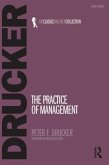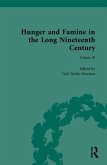"Natural selection is responsible for some (but not all) changes in biological populations. Some traits or organisms are fitter than others, and natural selection occurs when there are changes in the distribution of traits in populations because of fitness differences. Many philosophers of biology insist that a trait's fitnesses should be defined as an average of the fitnesses of individual members of the population that have the trait. Marshall Abrams argues convincingly against this wide-spread approach. As he shows, it conflicts with the roles that fitness is supposed to play in evolutionary theory, and with the ways that evolutionary biologists use fitness concepts in empirical research. The assumption that a causal kind of fitness is fundamentally a property of actual individuals has resulted in unnecessary philosophical puzzles and years of debate. Abrams came to see that the fitnesses of traits that are the basis of natural selection cannot be defined in terms of fitnesses of actual members of populations in the way that philosophers of biology often claim. Rather, it is an overall population-environment system-not actual, particular organisms living in particular environmental conditions-that is the basis of traits' fitnesses. Abrams argues that by distinguishing different classes of fitness concepts and the roles they play in the practice of evolutionary biology, we can see that evolutionary biologists' diverse uses fitness concepts make sense together and are consistent with the idea that fitness differences cause evolution. Abrams's insight has broad significance, for it provides a general framework for thinking about the metaphysics of biological evolution and its relations to empirical research. As such, it is a game-changing book for philosophers of biology and applied philosophy of probability"--
Hinweis: Dieser Artikel kann nur an eine deutsche Lieferadresse ausgeliefert werden.
Hinweis: Dieser Artikel kann nur an eine deutsche Lieferadresse ausgeliefert werden.








